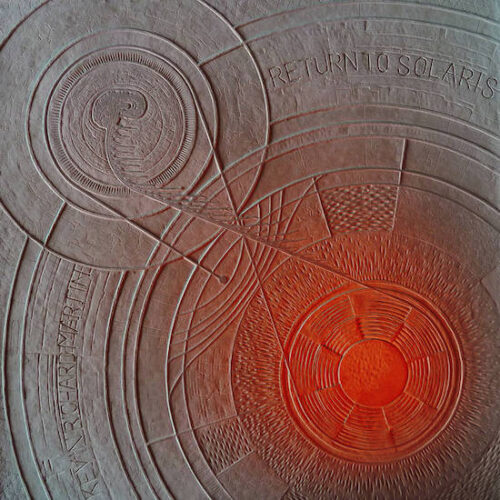In his varied and prolific career Kevin Martin has worn many musical hats – The Bug being the one for which he is probably best known – but has only begun releasing music under his own name in the last couple of years. Following 2019’s Sirens, an extremely personal record which Martin approached as a film score, Return To Solaris came about as an invitation from the Vooruit arts centre in Gent to write a new score for a film of his choice. He picked Andrei Tarkovsky’s 1972 sci-fi classic and the result is a suite of textured deep space drones haunted by existential anxieties.
It has a lightness of touch you might not expect from the acid ragga fire of some of his work. The Bug Meets The Space Invaders, it is not. Rather it extends a thread in Martin’s music that goes back through Sirens, The Bug Vs Earth and the King Midas Sound & Fennesz collaborations to the first Bug album, Tapping The Conversation, and beyond that to the Isolationism compilation he put together back in the 90s.
To call Solaris celebrated is to understate the case. The film itself, and days worth of analysis, can be found online. It is definitely worth your time. Briefly though, Solaris is a planet covered in a viscous ocean with extraordinary properties. Psychologist Kris Kelvin is a sent to a research station in its orbit to investigate a series of mysterious occurrences into which he becomes inevitably drawn. For Tarkovsky it’s important that Kelvin is a psychologist, rather than a spaceman. The film is a voyage into inner space, a bleak meditation on the power of memory, love, horror, and nostalgia.
Eduard Artemyev’s original score blends Bach with pioneering synthscapes created on a prototype machine that was destroyed soon after the recording. It’s surely an inspiration for Martin who makes use of an original Russian Pulsar 23 drum machine here, out of which he gets strange noises more than anything. There are some rhythmic elements but nothing you’d really call a beat and the melodic strands are stretched out and submerged in layers of textured sonics. It’s a far less physical sound, disembodied even. Not maximum sound pressure but waves of distortion and heat haze drones, the static of inchoate thoughts and repressed emotions. Much of it is noise but his remarkable sound-design suspends it in a dark vastness. It’s unhurried. Time elongates. Notes hang and drift past. The sound is dissipated, as if the music has no centre, drifting at a distance, orbiting a strange planet.
Martin says he was drawn to the film’s “struggle between organic, pastoral memories of a lost past, and the harsh, dystopian realities of a futuristic hell.” But Return to Solaris mostly avoids those two obvious extremes. A drift through alien space, it feels distant from the pastoral mood common to ambient music. Less visions of forests and oceans; more the oily protean mirror of Solaris itself. Equally, there is enough human warmth and feeling left in it to avoid the caustic finality of a “futuristic hell”. There’s more stillness, more space, less abrasion. The fear that all may be ruined and lost is not yet a certainty. Overall the album is more akin to purgatory, a suspension, a purifying reckoning with human failure. A volatile mix of drone calm and paranoia.



